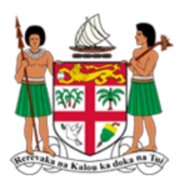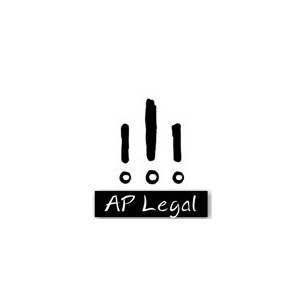Best ESG Advisory & Compliance Lawyers in Suva
Share your needs with us, get contacted by law firms.
Free. Takes 2 min.
List of the best lawyers in Suva, Fiji
About ESG Advisory & Compliance Law in Suva, Fiji
Environmental, Social, and Governance (ESG) Advisory and Compliance law in Suva, Fiji refers to the legal frameworks, regulations, and industry standards that shape how businesses operate responsibly. ESG factors have become increasingly important as companies, investors, and regulators pay greater attention to sustainable business practices that positively impact the environment, society, and governance structures. In Suva, companies are encouraged or sometimes required to align with both domestic laws and international ESG best practices. Compliance not only helps organizations meet legal standards but can also enhance their reputation and access to global markets.
Why You May Need a Lawyer
Businesses and organizations operating in Suva may require a lawyer specializing in ESG advisory and compliance for several reasons. Legal assistance can help:
- Understand and comply with local and international ESG regulations.
- Navigate new or evolving legislation related to environmental protection, labor rights, and corporate governance.
- Conduct ESG risk assessments to identify potential liabilities.
- Draft and implement internal ESG policies and codes of conduct.
- Respond to regulatory investigations or enforcement actions regarding ESG issues.
- Report ESG metrics transparently to stakeholders, investors, and regulatory bodies.
- Advise on sustainable investments and financing opportunities in compliance with ESG standards.
- Handle disputes or complaints related to environmental, social, or governance matters.
Local Laws Overview
In Fiji, several laws and regulations are relevant to ESG advisory and compliance. The Environment Management Act 2005 is a key piece of legislation that governs environmental responsibilities such as pollution control, waste management, and sustainable development. The Employment Relations Act 2007 covers employee rights, workplace safety, and anti-discrimination. The Companies Act 2015 sets out corporate governance requirements including transparency, director responsibilities, and stakeholder engagement.
Additionally, Fiji has ratified several international conventions related to human rights, labor standards, and environmental protection, which influence local compliance expectations. Regulatory bodies such as the Fijian Competition and Consumer Commission and the Fiji Revenue and Customs Service play roles in monitoring compliance and investigating breaches. Companies operating in Suva must stay informed about both statutory obligations and evolving international standards.
Frequently Asked Questions
What does ESG stand for?
ESG stands for Environmental, Social, and Governance. It refers to a set of standards for a company’s operations that socially conscious investors use to screen potential investments.
Why is ESG compliance important for businesses in Suva?
ESG compliance helps businesses operate responsibly, reduce legal and financial risks, attract investment, and enhance their reputation among stakeholders and customers both locally and internationally.
What are the main ESG regulations in Fiji?
Major ESG regulations include the Environment Management Act 2005, Employment Relations Act 2007, Companies Act 2015, and several environmental and labor standards set by government agencies and international treaties.
Are companies in Fiji required to report on ESG matters?
Certain sectors and larger companies may be required by law or by investors to report ESG-related data, particularly regarding environmental impact and workplace practices. Requirements continue to evolve in line with international best practices.
Can non-compliance with ESG laws result in penalties?
Yes. Companies that fail to comply with ESG laws can face fines, business sanctions, suspension of licenses, or reputational damage.
Who enforces ESG regulations in Fiji?
The Department of Environment, Ministry of Employment, Fijian Competition and Consumer Commission, and other government agencies are responsible for enforcing ESG-related laws.
How can a lawyer assist with ESG advisory and compliance?
A lawyer can help assess compliance risks, draft internal policies, provide legal opinions, assist with reporting, represent clients during enforcement actions, and advise on aligning with local and international standards.
What industries are most impacted by ESG regulations in Suva?
Industries such as tourism, manufacturing, agriculture, and financial services are significantly affected due to their environmental footprint and societal impacts.
Is ESG compliance only relevant for large companies?
No. While large companies may have more stringent requirements, small and medium enterprises are also increasingly expected to follow ESG practices, especially when dealing with international partners or investors.
How often should companies review their ESG policies?
It is good practice to review ESG policies at least annually or whenever there are significant changes to laws, business operations, or industry best practices.
Additional Resources
People seeking legal advice or further information on ESG advisory and compliance in Suva, Fiji may find the following resources useful:
- Department of Environment, Government of Fiji
- Ministry of Employment, Productivity and Industrial Relations
- Fijian Competition and Consumer Commission
- Reserve Bank of Fiji (for sustainable finance initiatives)
- Consumer Council of Fiji
- Fiji Commerce & Employers Federation
- Local law firms with ESG expertise
- Pacific Islands Private Sector Organisation (PIPSO)
- Chambers of Commerce and Industry bodies in Suva
Next Steps
If you need legal assistance regarding ESG advisory and compliance in Suva, Fiji, consider the following steps:
- Identify your specific ESG concerns or needs, such as environmental compliance, corporate governance, or social responsibility issues.
- Gather relevant documentation, such as company policies, regulatory notices, or incident reports.
- Consult with a legal professional specializing in ESG compliance for an initial assessment of your situation.
- Stay up to date with regulatory changes and evolving best practices in your industry.
- Implement internal ESG training and periodic reviews to ensure ongoing compliance.
Seeking early legal advice can help prevent compliance issues, avoid penalties, and strengthen your business’s commitment to responsible practices in Fiji.
Lawzana helps you find the best lawyers and law firms in Suva through a curated and pre-screened list of qualified legal professionals. Our platform offers rankings and detailed profiles of attorneys and law firms, allowing you to compare based on practice areas, including ESG Advisory & Compliance, experience, and client feedback.
Each profile includes a description of the firm's areas of practice, client reviews, team members and partners, year of establishment, spoken languages, office locations, contact information, social media presence, and any published articles or resources. Most firms on our platform speak English and are experienced in both local and international legal matters.
Get a quote from top-rated law firms in Suva, Fiji — quickly, securely, and without unnecessary hassle.
Disclaimer:
The information provided on this page is for general informational purposes only and does not constitute legal advice. While we strive to ensure the accuracy and relevance of the content, legal information may change over time, and interpretations of the law can vary. You should always consult with a qualified legal professional for advice specific to your situation.
We disclaim all liability for actions taken or not taken based on the content of this page. If you believe any information is incorrect or outdated, please contact us, and we will review and update it where appropriate.

















